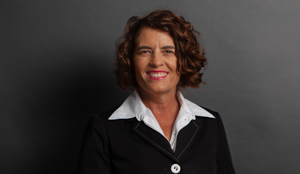Not what the doctor ordered: Authorisation application withdrawn for pharma patent settlement in Australia
Pharmaceutical manufacturing group, Celgene Corporation and Celgene Pty Ltd (together, “Celgene”), and generic drug companies, Juno Pharmaceuticals (“Juno”) and Natco Pharma (“Natco”), have withdrawn their application to the Australian Competition and Consumer Commission (“ACCC”) for the authorisation of a settlement and licence agreement.
Litigation background
On 9 November 2020, Juno and Natco commenced proceedings against Celgene in the Federal Court of Australia claiming that Celgene’s patents for lenalidomide and pomalidomide were invalid and should be revoked. On 29 January 2021, Celgene filed a cross claim against Juno and Natco claiming that they had threatened to infringe Celgene’s patents.
The companies subsequently discontinued the proceedings after reaching a settlement on commercial terms which included Celgene granting Juno and Natco licences to the Celgene patents. This would allow Juno and Natco to supply generic versions of Celgene’s blood cancer drugs Revlimid and Pomalyst before the expiry of the respective patents.
Authorisation application
The parties submitted an application to the ACCC for authorisation in respect of the settlement agreement reflecting concerns that certain provisions within the agreement might fall foul of Australia’s cartel conduct prohibitions.
Pharmaceutical patent settlement arrangements have been widely subject to scrutiny by competition regulators in the EU and US (often in a ‘pay for delay’ context). This is the first time that this issue has come before the ACCC following the removal of the IP licensing exemption from the Competition and Consumer Act in 2017.
Draft Determination
On 23 March 2022, the ACCC issue a draft determination proposing to refuse the party’s application because it was unsatisfied, based on the evidence provided, that the public benefits of the agreement would outweigh the likely public detriments. In addition, the ACCC considered that the “threat of generic entry, including the possibility of ‘at risk’ entry, and any subsequent response to entry is a key driver of competition”. The settlement agreement would, in the ACCC’s view, have impacted Celgene’s response to generic entry and removed the competitive tension between generic manufacturers.
One of the key issues for the ACCC was the perceived lack of information supporting the applicant’s views on the public benefits of the agreement.
While the ACCC proposed to deny authorisation, ACCC Commissioner Stephen Ridgeway said it “does not prevent the Applicants from settling the patent dispute proceedings. It means that the Applicants are not permitted to engage in cartel or other anti-competitive conduct under the agreement.” Of course that leaves open the question of what the agreement can do.
Withdrawal
On 29 July 2022, the ACCC announced that Celgene, Juno and Natco had withdrawn their application. The parties have not provided any reasons for their withdrawal. The ACCC again confirmed that it does not prevent the parties settling the proceedings nor agreeing to a licence agreement, as long as the terms do not contravene competition law. Celgene, in a subsequent press release, expressed the view that the proposed conduct would not have breached the competition law and that it was of a “plainly pro-competitive nature”.
The withdrawal of the application meant that the ACCC was not ultimately required to provide its final view on the application and as a result, the process has provided little insight into how the ACCC might treat patent settlements in the pharmaceutical sector.
However, it is clear that the ACCC will require a significant amount of evidence to be satisfied that such an agreement is, in all the circumstances likely to result in a benefit to the public which would outweigh the detriment.
For more information, please contact Thomas Jones, Jane Owen, Matthew Bovaird or Patrick Cordwell.





